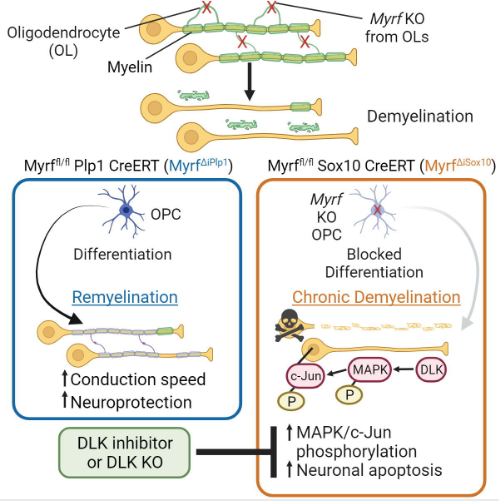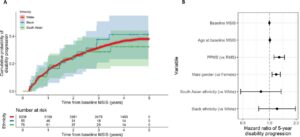
“Remyelination protects neurons from DLK-mediated neurodegeneration.”
Greg J Duncan, et al. – Oregon Health & Science University.
In this study, Duncan and colleagues demonstrated that chronic demyelination triggers apoptosis via dual leucine zipper kinase (DLK), which triggers phosphorylation of c-Jun and activates cell death pathways. This was achieved by comparing related mouse models of transient and chronic demyelination through inducible conditional knock-out of Myelin Regulatory Factor (Myrf); transient demyelination was induced by knocking Myrf out in mature oligodendrocytes, whereas chronic demyelination was induced by extending the knock-out to oligodendrocyte precursor cells. Blockade of DLK through pharmacological or genetic methods blocked apoptosis of retinal ganglion cells following chronic demyelination, positioning the DLK/c-Jun pathway as a therapeutic target for MS.
As the authors point out, however, clinical trials of DLK inhibitors in other neurodegenerative disorders have revealed significant safety concerns associated with sustained DLK blockade. Treatments centered around this pathway will likely need to target specific downstream effectors to be viable options for patients.




